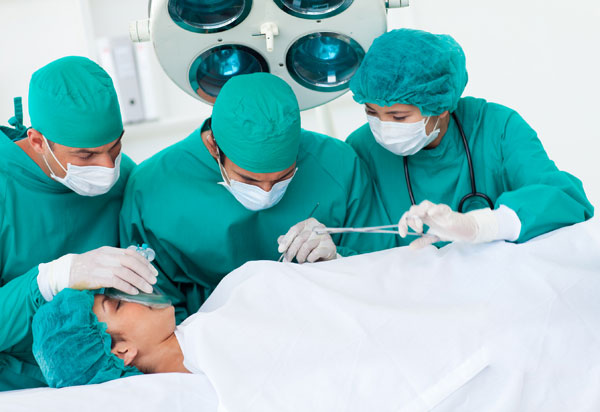Anesthesia May Put Kids at Increased Learning Disorder Risk

Get the world’s most fascinating discoveries delivered straight to your inbox.
You are now subscribed
Your newsletter sign-up was successful
Want to add more newsletters?

Delivered Daily
Daily Newsletter
Sign up for the latest discoveries, groundbreaking research and fascinating breakthroughs that impact you and the wider world direct to your inbox.

Once a week
Life's Little Mysteries
Feed your curiosity with an exclusive mystery every week, solved with science and delivered direct to your inbox before it's seen anywhere else.

Once a week
How It Works
Sign up to our free science & technology newsletter for your weekly fix of fascinating articles, quick quizzes, amazing images, and more

Delivered daily
Space.com Newsletter
Breaking space news, the latest updates on rocket launches, skywatching events and more!

Once a month
Watch This Space
Sign up to our monthly entertainment newsletter to keep up with all our coverage of the latest sci-fi and space movies, tv shows, games and books.

Once a week
Night Sky This Week
Discover this week's must-see night sky events, moon phases, and stunning astrophotos. Sign up for our skywatching newsletter and explore the universe with us!
Join the club
Get full access to premium articles, exclusive features and a growing list of member rewards.
Children who receive anesthesia several times for surgery before age 2 may be at increased risk of developing learning disorders, a new study suggests.
Among kids enrolled in the study, those with multiple exposures to anesthesia at a young age were two times more likely to develop a learning disorder by age 19 than those who weren't exposed to anesthesia, the study found. A single exposure did not increase the risk.
The results held even after the researchers accounted for other health conditions that might influence the development of learning problems.
The question of whether anesthesia may affect brain development is hotly debated. Animal studies show exposure to anesthesia drugs can cause brain cells to die, leading to learning and behavioral impairments, said study researcher Dr. Randall Flick, an anesthesiologist and pediatrician at the Mayo Clinic in Rochester, Minn.
However, proving these drugs cause problems in people has been difficult. Previous studies that have linked anesthesia exposure to learning difficulties have suffered from poor design and imprecise measurements, Flick said.
The new study clarifies some of these problems, and "definitely raises some concern that these drugs we are using may be toxic to children," said Dr. Ken Solt, an anesthesiologist at Massachusetts General Hospital in Boston, who was not involved in the study.
However, much uncertainty still exists. The new work has problems of its own, including the fact that the anesthesia drugs given to kids in this study are no longer used in the United States. And there's the possibility that the increased risk is due to the surgery itself, and not to the anesthesia, Solt said.
Get the world’s most fascinating discoveries delivered straight to your inbox.
Doctors are working on further studies in the hopes of addressing the issue more clearly.
Early anesthesia
Flick and colleagues studied data from more than 5,300 children born between 1976 and 1982 in Rochester, Minn. Of these, 350 underwent surgery that required anesthesia before the age of 2. These cases were compared to a control group of kids who were not exposed to anesthesia but were similar in terms of age, birth weight and mother's education (all factors known to influence learning disorders).
School records were used to determine whether the kids had learning disorders.
Among those who'd been put under anesthesia multiple times, 36.6 percent developed a learning disorder, compared with 23.6 percen tof kids with a single exposure and 21.3 percent with no exposure.
In addition, kids who were exposed to anesthesia were three times more likely to require a special education program to address their speech and language difficulties, Flick said. No link was found between anesthesia exposure and enrollment in special education programs for behavioral disorders, he said.
Is surgery needed?
No changes should be made to the way doctors practice medicine because of this study, said Dr. Lena Sun, a professor of anesthesiology and pediatrics at Columbia University in New York City.
"Children who need surgery should definitely have surgery," Sun said. However, doctors should be "doubly sure that this is something the child needs," she said.
Sun is conducting a long-term study to figure out of anesthesia poses risks to kids. Her study will enroll children who have had surgery that required anesthesia and follow them forward in time to see if learning disorders develop. The study will rigorously assess learning disorders, and try to tie deficits in learning to particular area of the brain, she said.
Pass it on: Anesthesia drugs may pose risks to children, but their true effect on kids' brains is far from certain.
Follow MyHealthNewsDaily staff writer Rachael Rettner on Twitter @RachaelRettner. Find us on Facebook.

Rachael is a Live Science contributor, and was a former channel editor and senior writer for Live Science between 2010 and 2022. She has a master's degree in journalism from New York University's Science, Health and Environmental Reporting Program. She also holds a B.S. in molecular biology and an M.S. in biology from the University of California, San Diego. Her work has appeared in Scienceline, The Washington Post and Scientific American.
 Live Science Plus
Live Science Plus










